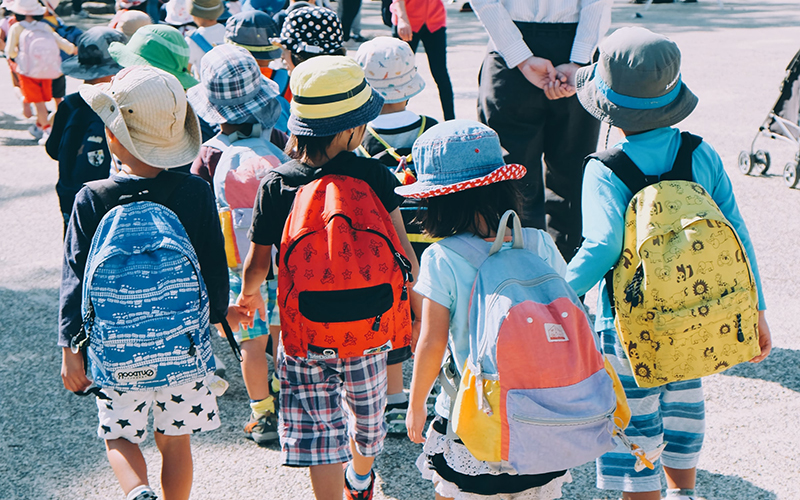Search
Research
Status and Trends of Physical Activity Surveillance, Policy, and Research in 164 Countries: Findings From the Global Observatory for Physical Activity-GoPA! 2015 and 2020 SurveysPhysical activity (PA) surveillance, policy, and research efforts need to be periodically appraised to gain insight into national and global capacities for PA promotion. The aim of this paper was to assess the status and trends in PA surveillance, policy, and research in 164 countries.
Research
Awake and Alert: Examining the Portrayal of Energy Drinks on TikTokEnergy drinks (EDs) are not recommended for minors' consumption due to a myriad of health risks, but marketing initiatives persist. This study explored the promotion of EDs on TikTok, a platform frequented by children and adolescents.
Research
Rehabilitation service provision and outcomes for children with stroke in Victoria and Western Australia in the pre-implementation era of clinical practice guidelinesThis study described the rehabilitation services accessed by children with stroke following acute admission to two Australian paediatric tertiary hospitals prior to the implementation of clinical practice guidelines. It also evaluated quality-of-care indicators for inpatient rehabilitation within these two settings.
Research
Impact of Host and Bacterial Metabolism on Antibiotic SusceptibilityAntimicrobial resistance (AMR) is a global healthcare emergency, directly causing 1.3 million deaths per year and predicted to increase dramatically over the coming decades. Understanding the molecular mechanisms underpinning antibiotic resistance is central to approaches for AMR surveillance and diagnosis in a clinical laboratory.
Research
Drug-resistant gram-negative bacterial infections in children in the Oceania region: review of the epidemiology, antimicrobial availability, treatment, clinical trial and pharmacokineticGram-negative bacterial infections remain a major cause of morbidity and mortality in children and neonates globally, compounded by the rise of antimicrobial resistance. Barriers to paediatric antibiotic licencing lead to reduced availability of potentially effective agents for treatment. For children and neonates in the Oceania region, specific challenges remain including a paucity of surveillance data on local rates of antimicrobial resistance, and lack of availability of newer, more costly agents.
Research
Automated Insulin Delivery Is Associated with Reduced Hospital Admissions and Costs for Acute Diabetes Complications in Children with Type 1 DiabetesThis study evaluated the association between insulin regimen, hospitalization for acute diabetes complications, and related health care costs in children with type 1 diabetes (T1D). Hospital admissions for diabetic ketoacidosis or hypoglycemia between January 5, 2022, and April 30, 2024, were analyzed in Western Australian children with T1D. Admissions due to newly diagnosed T1D were excluded. Incidence rate ratios were calculated using generalized estimating equations, adjusted for age, diabetes duration, and socioeconomic status.
Research
Pain and recovery profiles following common orthopaedic surgeries in childrenLittle evidence exists on the postoperative trajectory after paediatric orthopaedic surgery. Pain and behavioural disturbance can have short- and long-term impacts on children and their families. An improved understanding of procedure-specific postoperative trajectories can enhance recovery. The primary outcome was to examine the duration and severity of postoperative pain experienced by children undergoing 10 commonly performed orthopaedic procedures.
Research
Parent and Child Choice of Sugary Drinks Under Four Labelling ConditionsThe majority of Australian children exceed the World Health Organization's recommended dietary intake of free sugar, particularly through the consumption of sugar-sweetened beverages. Front-of-pack nutrition labels increase perceived risk and deter the consumption of sugar-sweetened beverages.
Research
The impact of immigration detention on children's mental health: systematic reviewThere are 117.3 million people forcibly displaced because of war, conflict and natural disasters: 40% are children. With growing numbers, many high-income countries have adopted or are considering increasingly restrictive policies of immigration detention. Research on the impact of detention on mental health has focused on adults, although recent studies report on children.

News & Events
New centre to focus on breaking the cycle of disadvantageThe ARC Centre of Excellence will conduct world-leading research to investigate new ways of tackling entrenched social and economic disadvantage.
